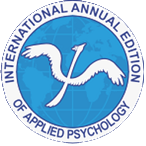Modeling the Process of Implicit learning Using a Multi-Level Test Gaming Platform
The article describes the phased development of a gaming test platform using information technology to simulate the process of implicit learning. An author’s method of studying the process of implicit learning based on a modification of Method A of the Rib is proposed, and a psychological justification of the developed multilevel test gaming platform for fixing the process of learning and its results is given.
Bibliography
- Reber, A.S. (1967). Implicit Learning of Artificial Grammars. Journal of Verbal Learning and Verbal Behavior. Vol. 77, Pp. 317–327.
- Reber, A.S. (1992). The Cognitive Unconscious: An Evolutionary Perspective. Consciousness and Cognition. 1 (2), Pp. 93-133.
- Ivanchey, I.I. (2017) Implicit learning. Available at: https://postnauka.ru/video/81475 (Accessed 1, December 2019).
- Hegenkhan, B. (2004). Theory of learning. Moscow: Olson. St. Petersburg: Peter. 474 p. (in Russian).
- Matushkina, V.A. (2017). Interrelation of Implicit Learning and Cognitive Features of Personality. International Annual Edition of Applied Psychology: Theory, Research, and Practice. Saratov. V. 4, Iss. 1. Pp. 115-121.
- Ivanchey, I.I. (2016). Conscious and Unconscious Processes of Information Processing in the Assimilation of Artificial Grammars: Diss. Cand. Sci. (Psychology). St. Petersburg. St. Petersburg State University, 176 p. (in Russian).
- Ivanchey, I.I., Andriyanova, N.V. (2015). Two-System Symbolic Computational Model of Mastering Artificial Grammar. Science and education. Moscow: Bauman Moscow State Technical University. No. 05. Pp. 251-265. (in Russian).
- Academician. Vocational Education. Vocabulary. Key Concepts, Terms, Relevant Vocabulary. Moscow: Scientific and Methodological Center of Secondary Vocational Education. 1999. Available at: https://professional_education.academic.ru/1087. (Accessed 1, December 2019) (in Russian).
- Dyakonova, O.O. (2012). The Concept of “Education” in Domestic and Foreign Psychology Siberian Pedagogical Journal. No. 6, Pp. 182-185. (in Russian).
- Stolyarenko, L.D. (2000). Fundamentals of Psychology. Rostov on Don: Phenix. 672 p. Available at: http://bookap.info/genpsy/stolyarenko_osnovy_psihologii/gl7.shtm. (Accessed 1, December 2019). (in Russian).
- Popov, A. (2006). Marketing Games. Entertain and conquer. Moscow: Mann, Ivanov and Ferber. 310 p. Available at: http://www.e-reading.club/chapter.php/72994/8/Popov Marketingovye_igry._Razvlekaii_i_vlastvuii.html (Accessed: 15, April 2017). (in Russian).
- Nieuwenhuis, I.L.C., Folia, V., Forkstam, Ch., Jensen, O., Petersson K.M. (2013). Sleep Promotes the Extraction of Grammatical Rules. PLoS ONE. 8 (6): e65046. Available at: doi:10.1371/journal.pone.0065046 (Accessed: 15, April 2017).
- Folia, V and Petersson, K.M. (2014). Implicit structured sequence learning: an fMRI study of the structural mere-exposure effect. Frontiers in Psychology. 5:41. Available at: doi: 10.3389/ fpsyg.2014.00041. (Accessed 1, December 2019).
- Androsov, I.A. (2017). The Task of Evaluating the Admissibility of a Sequence: Course. R. Saratov. 24 p. (in Russian).
Journal issue:
стр. 41
Text in pdf:

